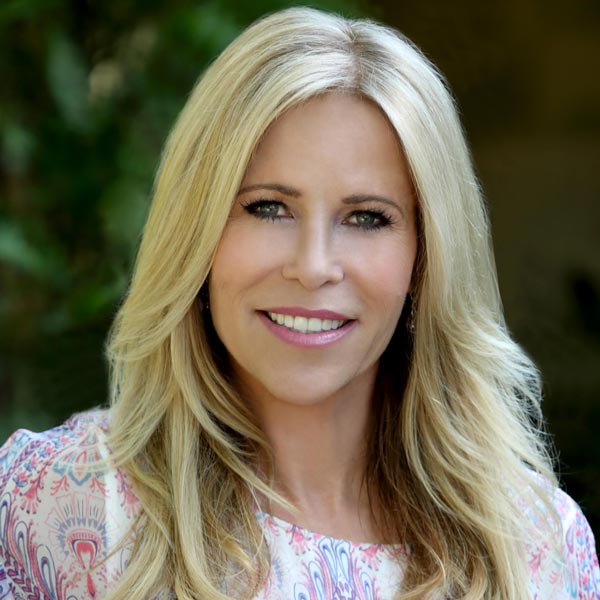The moment I accepted that my ex-husband and I were fundamentally different was similar to the moment I accepted Christ into my heart. Before this one pivotal conversation with my ex, I found myself trapped in a deprivation box — no light, no growth, no hope — until the lights flipped on, trumpets blasted overhead from all the way up in heaven, and I could finally shake off the confused sense of helplessness that followed me throughout my marriage and after my divorce. It was the moment when I finally started to pick up the pieces and transform myself into a stronger and better version of me.
Like any other client, I was sitting in my ex-husband’s pristine executive office on the opposite side of his burl wood desk. Between him and I stood stacks of high-end real estate contracts from around the world. However, our meeting was to discuss our eight-year-old son, who was once again struggling at school, unlike his high-net-worth clients. Our son was bullying other kids, making it appear as though the principal’s office had a revolving door.
Though my once sweet and passive son was inflicting pain onto other children, I knew he, too, was suffering. His bullying was a manifestation of that agony, which emanated from our divorce and the unhealthy co-parenting relationship that followed (or, should I say, continued from what it was during our marriage). I believe my son needed love and understanding, not de facto punishment, to get to the root of his issues. His father thought otherwise.
I had what I believed to be the solution to my son’s bullying problem firmly resting on my lap. It was a book called “Strength-Based Leadership,” which encouraged parents and executives to focus on the strengths found in their children and employees instead of their weaknesses. Its message spoke to me in a way that was perfectly compatible with my Presbyterian upbringing: we should build people up. That included my sweet but very confused son.
This message did not resonate well with my ex-husband, who was brought up differently and received his early education at a parochial school, a school comparable to the one he picked for our young son. An important and relatively well-known element of Catholic school education is the concept of confession: students commit sins and, therefore, need to admit to their sinful behavior regularly.
Given my son’s continued bullying of other children, I knew this approach was not working. My son had begun to tell outrageous lies in an attempt to satisfy this ritual. A routine moral inventory is difficult to grasp for most adults, let alone a young child. I knew there had to be a different way and hoped my ex-husband would hear me out.
Instead, the book became the latest of my insights for him to dismiss. In his prideful innocence, my ex-husband pulled another book out from the stack of files on his desk. Its title read, “The Productive Narcissist.”
He revealed he had been working from this book with our therapists. That was news to me. Though we visited the husband-wife therapy practice separately and together while we were married, I had no idea they were reinforcing beliefs that ran contrary to what I believed a husband and a parent should espouse.
As had happened many times before, he proceeded to drone on about how he was right, I was wrong, and that his book was superior to mine. At first, it felt as though I was shrinking into my chair, which was likely the response he desired.
But as I reflected during his overly determined monologue, I found the determination to maintain piercing eye contact with him. Somewhere deep inside of me, my truth came pouring out. I could no longer engage with my ex-husband the way I had been. I needed to let go of what I could not change, improve my life, and by default, my son’s, and focus on making myself strong. That began with me returning to and surrendering to a powerful God and His love.
I felt my body grow into a star, blindingly bright, too big for the chair — no, too big for the office. The building. The world. It occurred to me that I wasn’t seeing the paradoxically fiery flame of my ex-husband’s apathy at this moment. I was seeing the light of heaven beseeching me to accept the infinite love of Christ back into my heart and release healing energy into the world instead of absorbing toxic energy.
At first, I shrank in the chair. This message almost felt like the panic attacks I’d suffered from in the past. But, this time, instead of internalizing that fear, I let it bounce right off of me. I felt indestructible. Immune.
Reflecting his same stoic, unaffected demeanor, I stood up from my ex-husband’s artificially immaculate office and said, “Thanks for taking the time to meet with me. Maybe you can consider this book, too. I’ll leave it here for you.” Then I left.
It doesn’t take the omniscience of God to know that the book ended up being just another addition to the pile on his desk. After that stressful encounter, I drove home, took a nice long bath, and contemplated the meeting I’d had with my ex earlier that day.
He and I were two different people with two irreconcilable views. I had a choice. I could dwell on it forever and try to change him, forcing him to be an inauthentic version of himself. Or I could accept him, understand that we were incompatible and, instead, take the lessons from “Strength-Based Leadership” to build myself up again.
Just like after my baptism, I emerged from the bath a born-again Christian. It reminded me of when I went through the process of divorcing my ex-husband; I spent my time researching the healing powers of Christ. I developed a strong interest in faith-based meditation, which lifted me every time it felt as though God was testing me. Those tests came to me in every rebuke from my ex, our ever-worsening co-parenting relationship, and, most poignantly, the suffering exhibited by our then little boy, which led me to my ex-husband’s office that day.
I once again applied the lessons I learned from God on strength and healing to my everyday life and began sitting with God daily during a guided meditation practice I developed. During my parenting time, I worked toward building my son up into the wonderful young man he is today by focusing on his strengths.
I accepted my son, sought to understand his behavior, and then comforted him in the midst of his anger and pain. I accepted my ex-husband, too, all because I accepted Christ. After much work, I finally accepted myself, the mistakes I made, the mistakes I make, and the mistakes I will make. That’s because we are all imperfect humans, and we all deserve to be loved.
God made all of His children to be unique from one another, yet He loves us all just the same. As His children, we should apply this lesson and love each other as well. All the while understanding and accepting that, sometimes, we fall in love with someone to learn to be stronger and more loving. Like Zha Zha Gabor said, “you never really know a man until after you divorce him.” In my case, I agree.

Tonyah Dee has studied the Bible and wisdom traditions of the world for the last 30 years and teaches about finding ways to increase inner strength, stability, and confidence through practicing spiritual disciplines and healthy habits daily. Tonyah is a nutritionist, registered dietitian (R.D.), and earned her B.S. from Loma Linda University. She also holds certifications in Christ-centered life coaching, and meditation. Tonyah has been published in Scary Mommy, MSN, The Mighty, Mantra Wellness, CoveyClub, Thrive Global. Follow Tonyah on her blog, Facebook, Instagram, YouTube, LinkedIn, and Medium.

